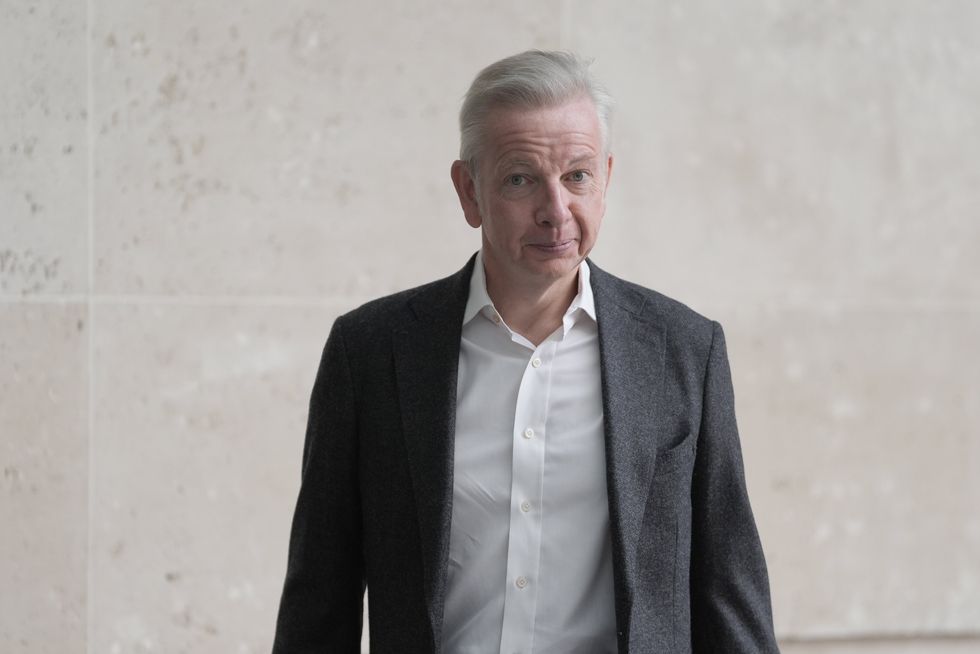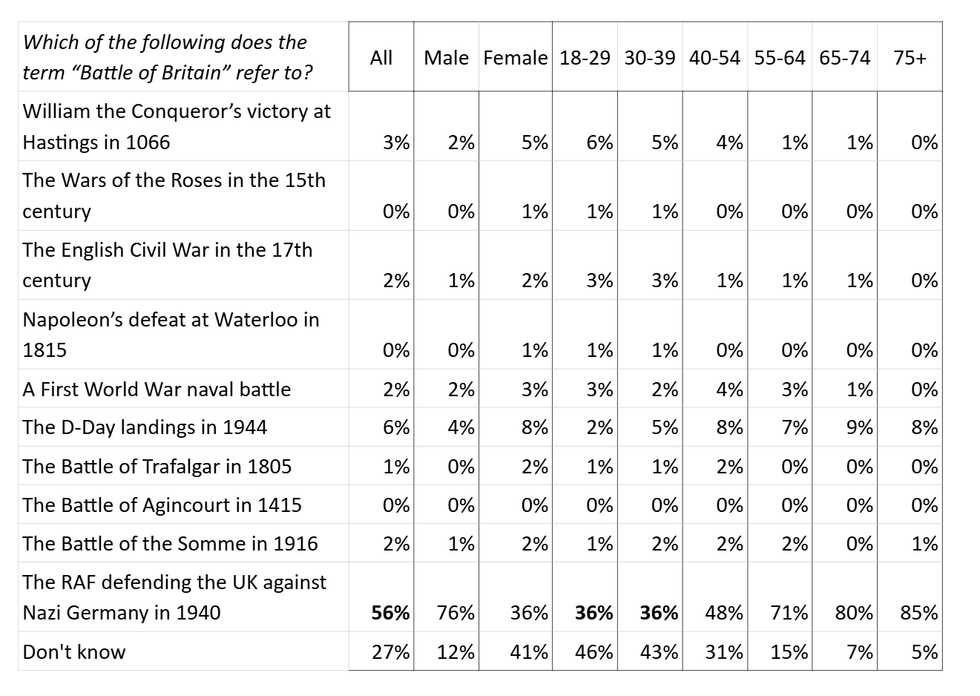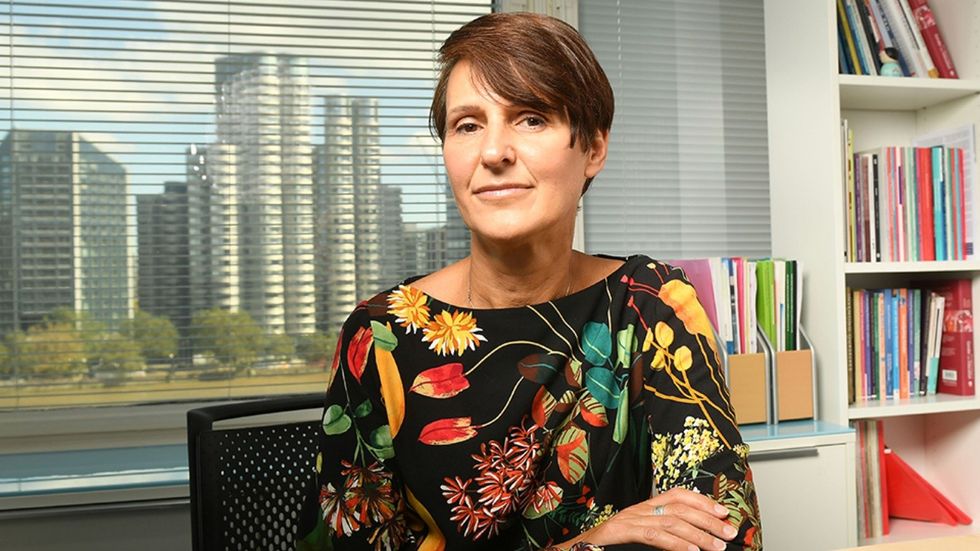


Children taught to be 'ashamed of British culture and history' as 'corrosive' rot infects UK schools

Schools have been told to place Britain's rich culture and history at the heart of the UK's national curriculum in an effort to restore national pride.
Campaigners and headteachers across the UK told GB News that "corrosive" changes over the last 30 years have resulted in children being taught that Britain's national culture and history is "intrinsically morally flawed".
Only 44 per cent of the UK's 10.6 million pupils are required to follow the national curriculum, limited in England to institutions managed by local authorities.
The remaining schools, including academies, free schools, and independent schools, are exempt from this obligation and are able to set their own curricula.
Speaking on how the national curriculum has evolved in the last 30 years, Peter Mandler, Professor of Modern Cultural History at Cambridge University, told GB News: "In general, over the long term, the curriculum has become more international.
"When I was an undergraduate 50 years ago, we were taught only British and some European history - hardly any mention of the rest of the world."
Since its introduction in the late 1980s, the national curriculum has undergone multiple revisions, with each reform sparking debate about what children in Britain's schools should learn.
Now, more than three decades on, questions are resurfacing about whether recent changes mean British pupils are learning less about Britain itself.

Critics suggest that the drive for a knowledge-rich, exam-oriented syllabus may have narrowed what pupils learn about their own country
|GETTY
Dr Alka Sehgal Cuthbert, from Don't Divide Us, said: "Over the years, the national curriculum has been regarded as a mechanism for economic and social policies, from increasing productivity to decreasing obesity, all of which are secondary to education's two fundamental roles - to transmit the best knowledge we have to date and to contribute in socialising the next generation into the norms of conduct and character which most people uphold in society.
"This includes upholding a commitment to objectivity in teaching. This has been seriously eroded over recent years.
"There is more than one cause, but one main factor has been the uncritical acceptance of multicultural tenets among the profession, which has been turbo-charged by identity politics."
She continued: "The result is that Britain's national culture and history are often presented as intrinsically morally flawed.
"The subjects most affected by this political shift are History and English Literature, as well as in pastoral practice - as in the girl recently sent home for wearing a Union Jack dress.
"Anti-patriotism is a political view which is presented in schools as common sense.
"It is corrosive because it puts schools and teachers at odds with moral beliefs held by the majority of people, most of whom are rather fond of our country."

Dr Alka Sehgal Cuthbert, from Don't Divide Us, warned an erosion of objective teaching has resulted in 'Britain's national culture and history is often presented as intrinsically morally flawed'
|GETTY
The national curriculum, first established by the Education Reform Act of 1988, was intended to ensure that all pupils received a broad and balanced education.
By the early 1990s, pupils were sitting compulsory tests at different key stages, with subjects such as English, Maths, Science and History forming the backbone of classroom teaching.
The focus was not just on academic ability, but also on instilling a sense of national identity.
Over time, however, successive Tory and Labour Governments have re-engineered the framework.
The Curriculum 2000 reforms placed greater emphasis on modular exams and broadened subject choice at post-16, while languages, arts and design were scaled back in many schools to make room for core subjects.
The most significant overhaul came in 2014, under then-Education Secretary Michael Gove, who reformed many areas of education.
The revised curriculum promised to be "slimmer but tougher," placing more weight on core knowledge.
Pupils would study Shakespeare earlier, tackle complex maths sooner and learn to code under the new computing curriculum.
At the same time, history lessons were reshaped to follow a more chronological narrative.
Supporters argued that this sharpened Britain’s educational standards, aligning them with those of international competitors.
Yet critics suggest that the drive for a knowledge-rich, exam-oriented syllabus may have narrowed what pupils learn about their own country.

The Curriculum 2000 reforms placed greater emphasis on modular exams
| GETTYKatharine Birbalsingh, headteacher and education reform advocate, told GB News: "Michael Gove tried to push a more traditional approach to teaching history, but it is just up to the school; sometimes it might be the head of history and the department that sets the curriculum for the school.
"It depends on what the head of history or the history teacher prioritises to teach. So in 1990, what history teachers would have thought was important to teach would have been very different to what they think is important to teach today.
"In 1990, what we valued as a society when it came to history, and what we value as a society now when it comes to history, is very different. That will tell you what will likely be taught in schools.
"But just by looking at society, schools tend to reflect what happens in society, and what we think is important to learn in society."
Mark Lehain, Executive Headteacher at Wootton Academy Trust and former special adviser for the Department of Education said: "I actually think that the quality of the History taught in most schools has been better since Nick Gibb and Michael Gove overhauled the national curriculum just over a decade ago.
"Schools need to ensure a strong core of British history is covered, as well as a range of key international topics too. The challenge is ensuring that teachers do this in a neutral way, and many have concerns that too often emphasis is given to more partisan or contested views.
"Understanding our history is a key part of education and of building a coherent sense of nationhood. Of course, what we cover will change over time as events happen and society changes.
"And as we become an increasingly diverse place, it's even more important than ever that every child shares a common understanding of this country's amazing history, so that they understand how things became as they are, and better prepare us for the future."

Under then-Education Secretary Michael Gove, many areas of education were reformed in 2014
|PA
In a shocking poll, commissioned by Shadow Justice Secretary Robert Jenrick and conducted by FindOutNow on September 11, over 64 per cent of young Britons said they "don't know" what the Battle of Britain is.
It went on to show that 44 per cent of all Britons "didn’t know" the UK won the monumental Second World War aerial battle.
As the country celebrated the 85th anniversary of the Battle of Britain last month, Robert Jenrick issued a warning over the "neglecting" of our history and called for a change to the national curriculum so that every child can learn about Britain's heroic triumph to end "a crisis of national self-confidence".
He argues the move would be necessary for the wartime generation’s "example to live on as a source of inspiration for future generations".
"For too long our history has been neglected," Mr Jenrick said.
"We have allowed our past to become a source of shame, even as the rest of the world still looks to us with admiration.
"It’s hardly surprising we have a crisis of national self-confidence when our past achievements aren’t properly taught in schools.
"Every child growing up should learn about the Battle of Britain and the heroics of the wartime generation.
"Their example must live on as a source of inspiration for future generations."
 The new poll commissioned by Robert Jenrick MP shows that two-thirds of under-40s don't know what the Battle of Britain is | SUPPLIED
The new poll commissioned by Robert Jenrick MP shows that two-thirds of under-40s don't know what the Battle of Britain is | SUPPLIED
Aman Bhogal, campaigner for a Global Britain, claimed that "reforming our curriculum is central to conserving our civilisational inheritance".
He told the People's Channel: "When the next generation is largely oblivious to the Battle of Britain, the great generation fought and won for our freedoms, it is a shocking indictment of our national curriculum failing in its most basic duty, to educate.
"Teaching the meaning of British values of democracy, the rule of law, individual liberty and tolerance has often morphed into celebrating 'refugee week' whilst cancelling our traditional festivals, promoting multiculturalism at the cost of national unity and integration.
"Far too often, a twisted Marxist academic outlook on British history has sought to villainise our glorious civilisational heritage and historical patriots. We in Britain are blessed to call a truly civilisational nation our home, and this pride should form the core of our curriculum.
"We gave the world history-defining inventions and discoveries - every week should be a ‘Great Britain’ week - to instil national pride, galvanising the next generation with aspiration to paint their bit of our national tapestry!
"We ought to take a leaf out of the recent Indian national curriculum reforms, which 'envisage a system of education in the country that is rooted in national ethos and its civilisational accomplishments in all fields of knowledge and human endeavour.'
"Fly the union flag from every school, begin the day with prayers and thanks for the Kingdom, and get back to teaching, not preaching. Reforming our curriculum is central to conserving our civilisational inheritance. This is our battle for Britain."

Labour has set up an independent review of the National Curriculum and assessment, chaired by Professor Becky Francis
|GOV.UK
Labour has set up an independent review of the national curriculum and assessment, chaired by Professor Becky Francis.
Their curriculum reforms aim to modernise education by strengthening core skills while expanding digital, creative, and life skills.
They also focus on inclusivity, diversity, and rebalancing assessment beyond high-stakes exams.
Experts recommend broadening Maths, English, and Science to boost literacy, diversity, inquiry, and sustainability.
They also call for stronger access to creative, vocational subjects and safeguarding time for PE.
Mr Bhogal added that the review will make no difference, arguing that the Labour Government are "ideologically motivated by a vision which is antithetical to the very idea of Britain as a civilisational nation which needs to be conserved".
He said: "Moreover, with academia captured by leftist teachers, any nation's first reforms to the curriculum would never be meaningfully delivered."
